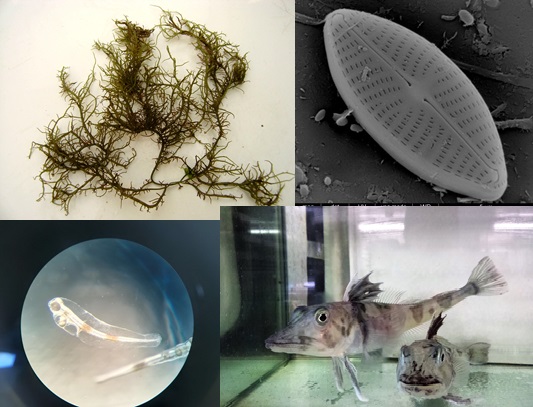
Life cycles and adaptations of marine organisms
The course deals with some of the many adaptations that marine organisms, both animals and plants, have acquired during their evolution, with particular attention to reproductive and development cycles and physiological responses in relation to the environment in which they live.
Regarding the plant component, life cycle of photosynthetic marine organisms belonging to different systematic taxa will be analyzed. Moreover, adaptive strategies of these organisms in response to various environmental stress conditions and to competitive species will be examined. Finally, the ability of algae to produce different bioactive compounds will be considered.
As for the animal component, the life cycles, relations between life cycles and vulnerability to anthropogenic pressures, and evolution of like history traits under fishery pressures will be addressed. The physiology of marine animals will be addressed considering the three main functions, namely circulation of internal fluids, respiratory exchanges and excretion. Regarding nervous and endocrine regulations, the development of these two systems will be integrated with the three apparatuses previously indicated.
The teaching methods will include interactive frontal lessons and laboratories, during which students will work in group to practically deepen some theoretical aspects of animal physiology dealt during the lessons. The classroom activities will also include seminars by students, during which scientific results in the field of the physiology of marine organisms, published in international journals, will be analyzed and presented (journal club).
The three course teachers are Prof. Isabella Moro for the plant part, Prof. Carlotta Mazzoldi and Prof. Gianfranco Santovito for the animal part.
For the complete program please consult the Syllabus






